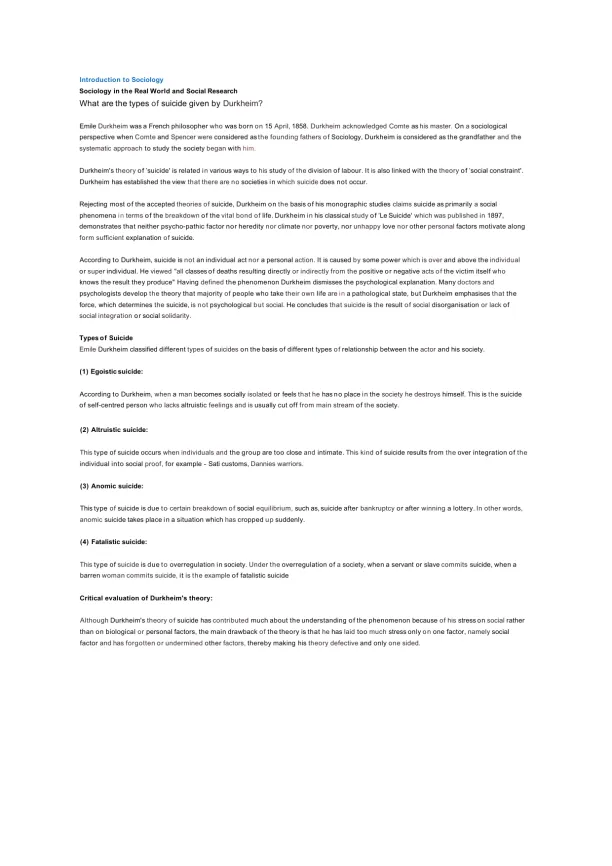Page 1

Loading page image...
Explore Emile Durkheim’s theory on suicide from a sociological perspective. Learn about the four types—egoistic, altruistic, anomic, and fatalistic—and how social integration or disintegration influences suicidal behavior in society.
Loading page image...